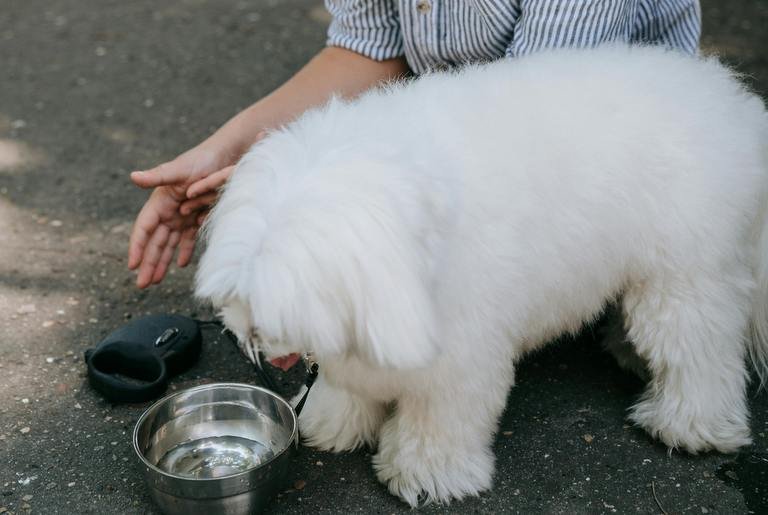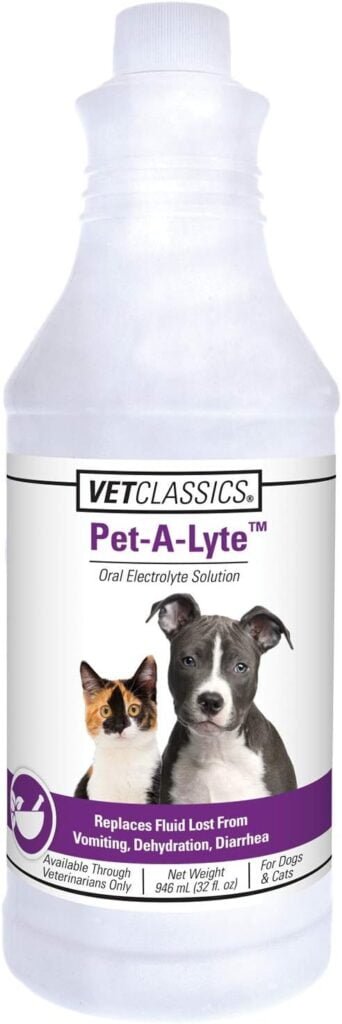Keeping your dog well-hydrated is crucial for their health, so when dog refuse to drink water, it can be concerning.
Dogs should eagerly drink water several times a day, and if your dog avoids water for a day or more, there could be an underlying issue.
This refusal may be related to age, health conditions, or even the quality of the water itself. Prolonged Refusing to Drink in Dogs can lead to dehydration, a serious condition that may require immediate veterinary attention.
Why My Dog Refuse To Drink Water?
Dogs naturally drink water throughout the day, and any sudden changes in this pattern should be taken seriously. Here are common reasons why your dog might be refusing to drink water:
1. Aging
Older dogs may have less energy and, as a result, may not be as motivated to drink water. Reduced activity often lowers their overall thirst levels. To ensure your senior dog stays hydrated, you can try offering meals with higher water content, such as switching to canned food instead of dry kibble.
2. Tainted Water
Dogs have an acute sense of smell and taste and can detect impurities in their water that are undetectable to humans. If your dog suddenly refuses to drink but seems otherwise healthy, the water may be contaminated with substances like iron, dirt, or chemicals. Always ensure your dog has access to clean, fresh water.
3. Dehydration
Dehydration in dogs is a dangerous condition that can develop quickly if they refuse to drink. Signs of dehydration include excessive panting, dry gums, lack of coordination, and loss of skin elasticity. Immediate veterinary intervention is often needed to rehydrate a severely dehydrated dog.
4. Illness or Injury
Various health conditions can cause a dog to stop drinking water. Urinary tract infections (UTIs) and oral injuries, such as periodontal disease or tooth abscesses, can make drinking painful, leading to refusal. UTIs can be especially painful, causing frequent urination, discomfort, and even blood in the urine, which may discourage your dog from drinking.
What to Do if Your Dog Refuse To Drink Water

If your dog refuses to drink water, identifying the cause is key to determining the best course of action. Here’s how to address the issue based on different scenarios:
For Aging Dogs
Older dogs may need more encouragement to stay hydrated. Ensure water is easily accessible by placing bowls in convenient locations around the house. You can also offer water-rich foods and monitor their hydration levels closely. If your senior dog continues to avoid water, consult your veterinarian to rule out any underlying health issues.
For Tainted Water
If you suspect the water is the problem, clean your dog’s water bowl thoroughly and refill it with fresh, filtered water. Offer bottled water to see if the refusal persists. Make sure the water is always clean, and replace it at least once a day.
For Dehydration
If your dog shows signs of dehydration, try to encourage them to drink water or a dog-friendly rehydration solution.
If the condition worsens, seek immediate veterinary care. Your vet may administer fluids subcutaneously or intravenously to help rehydrate your dog quickly.

A dog-friendly rehydration solution product, check details on Amazon
For Illness or Injury
Dogs suffering from UTIs, dental problems, or oral injuries should be seen by a veterinarian as soon as possible. UTIs are typically treated with antibiotics, while dental issues like abscesses or broken teeth may require more extensive treatments, including cleaning, extraction, or surgery.
If you notice any abnormalities in your dog’s mouth, such as swelling or broken teeth, prompt veterinary care is essential.
Dog Refuse To Drink Preventing
Preventing your dog from refusing water starts with good care and monitoring. Here are some tips to help keep your dog hydrated and healthy:
- Ensure Clean Water: Always provide fresh, pure water for your dog and clean their water bowls daily. This helps prevent them from rejecting water due to contaminants or bad taste.
- Prevent Dehydration: Never leave your dog in a hot, confined space, such as a car. Ensure they have constant access to water, especially after exercise or during warm weather.
- Oral Health Care: Prevent dental problems by giving your dog safe chew toys and having their teeth cleaned regularly by a veterinarian. Avoid letting your dog chew on hard or splintering objects like sticks.
- Monitor for Health Issues: Pay close attention to your dog’s drinking habits, especially as they age. Any significant changes in behavior, such as a sudden refusal to drink, should be evaluated by a vet to prevent more serious health problems.
Conclusion
If your dog refuse to drink water, it’s important to determine the cause and address it promptly. Hydration is critical to your dog’s health, and prolonged refusal to drink can lead to severe dehydration and other complications.
By monitoring your dog’s drinking habits, providing clean water, and seeking veterinary care when necessary, you can help keep your dog healthy and hydrated.




